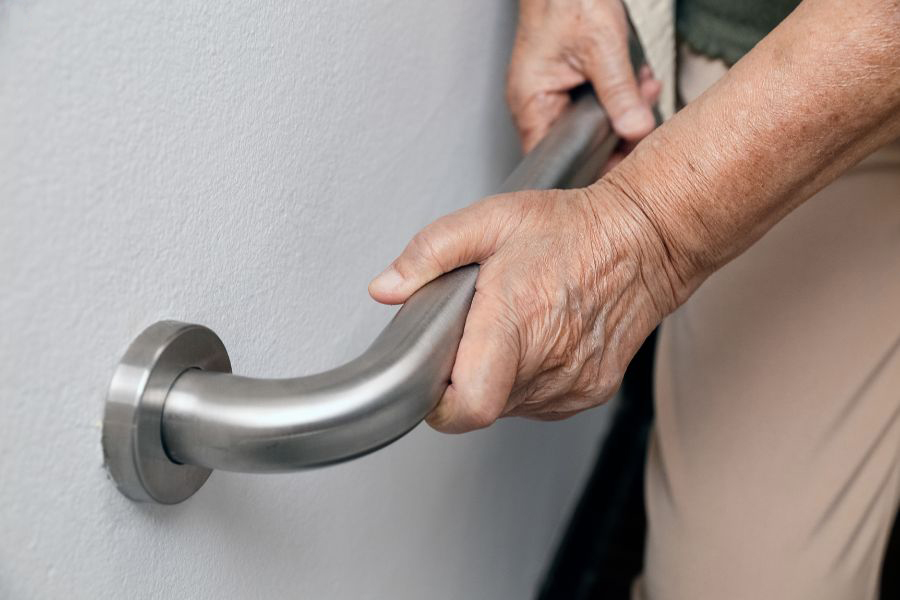Home healthcare is becoming an increasingly popular choice for families seeking quality medical and personal care in the comfort of their own homes. With an aging population, advancements in healthcare, and a growing preference for personalized care, more families are choosing in-home services over traditional facilities. This shift offers numerous benefits, from enhanced comfort to improved health outcomes.
The growing need for home healthcare
As life expectancy increases, so does the demand for healthcare services that cater to seniors, individuals with chronic illnesses, and those recovering from surgery. Many families prefer home healthcare because it allows their loved ones to receive professional care while maintaining their independence.
Studies show that patients recover faster at home than in hospitals or nursing facilities. Home healthcare also reduces the risk of infections and hospital readmissions. With personalized care plans, patients receive one-on-one attention from skilled professionals, ensuring their unique medical and personal needs are met.
Additionally, home healthcare offers a cost-effective alternative to long-term hospital stays and assisted living facilities. Families can customize care services based on their budget and needs, making it a flexible and practical solution for many households.
Personalized care in a comfortable environment
One of the biggest advantages of home healthcare is the ability to receive care in a familiar and comfortable setting. Unlike hospitals or nursing homes, where care is often standardized, home healthcare providers tailor services to fit the patient’s lifestyle, preferences, and medical conditions.
This personalized approach ensures better patient outcomes, as individuals feel more relaxed and supported. From medication management to physical therapy, home healthcare professionals create care plans that promote recovery, mobility, and overall well-being.
Moreover, being at home allows patients to stay connected with their loved ones, reducing feelings of isolation and depression. Studies have shown that emotional support plays a significant role in healing and maintaining a positive outlook, making home healthcare an ideal choice for those needing long-term or short-term medical attention.
Skilled nursing and medical assistance at home
Many people assume home healthcare is limited to non-medical services, but it also includes skilled nursing care provided by licensed professionals. Services such as wound care, medication administration, post-surgical monitoring, and chronic disease management can all be done at home under the supervision of registered nurses (RNs) and other healthcare professionals.
Patients with conditions like diabetes, heart disease, or respiratory illnesses benefit significantly from regular monitoring at home, which helps prevent complications and unnecessary hospital visits. Skilled home health professionals work closely with physicians to ensure each patient receives comprehensive care tailored to their needs.
For those recovering from surgery, home healthcare provides post-operative care, physical therapy, and assistance with rehabilitation exercises. This level of professional support accelerates recovery and improves overall health outcomes.
The role of caregivers in daily living assistance
Beyond medical care, home healthcare also includes personal care services provided by trained caregivers. These services help individuals with daily activities such as bathing, dressing, meal preparation, mobility assistance, and light housekeeping.
Caregivers play a crucial role in maintaining a patient’s quality of life by providing companionship and emotional support. This is especially important for seniors who may struggle with loneliness or cognitive decline. Having a compassionate caregiver ensures that individuals receive not only physical assistance but also social interaction, which enhances mental well-being.
Families also benefit from home healthcare, as it relieves the burden of caregiving. Knowing that a professional is assisting their loved one allows family members to focus on their responsibilities while ensuring their loved one receives the best possible care.
The future of home healthcare: A growing industry
As technology and healthcare services evolve, home healthcare is expected to become even more efficient and accessible. Telemedicine, remote patient monitoring, and AI-driven healthcare solutions are making it easier for professionals to track patient health in real time and respond to emergencies quickly.
The home healthcare industry is expanding, with more providers offering specialized care services for seniors, individuals with disabilities, and those recovering from medical procedures. With a focus on personalized and patient-centered care, home healthcare will continue to be a preferred option for many families in the coming years.
Moreover, government programs and insurance providers are recognizing the value of home healthcare and offering more coverage options. As a result, more families can access affordable and high-quality care without the financial strain of long-term hospital stays or assisted living facilities.
Conclusion
The rise of home healthcare is revolutionizing how individuals receive medical and personal care. From personalized treatment to skilled nursing and daily living assistance, home healthcare provides numerous benefits for patients and their families. As the industry continues to grow, it remains an essential solution for those seeking quality care in the comfort of their own homes.






